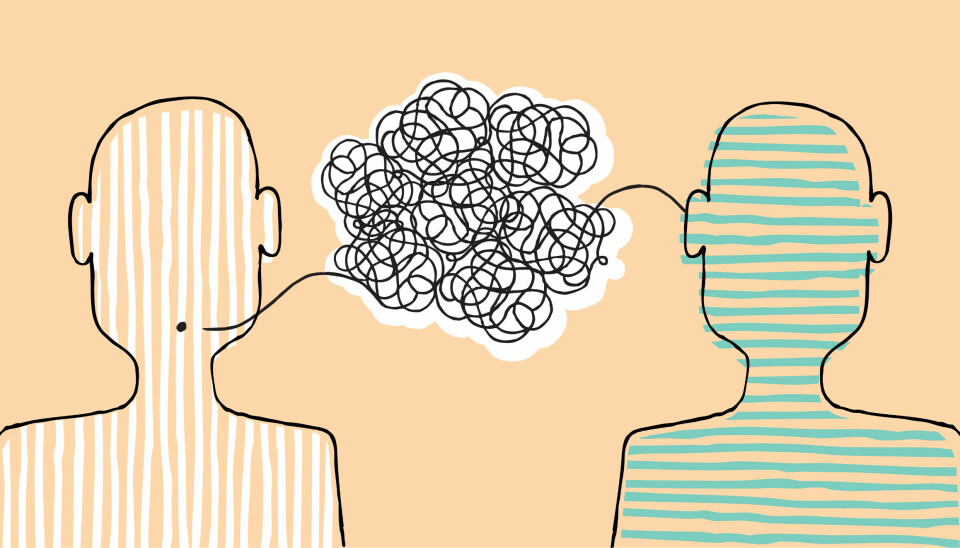I was recently talking with someone who i'm mentoring about communication preferences and having a discussion with team members about how they want to be communicated to, and how you prefer to be communicated to. It made me reflect that although we've come a long way with respecting different types of communication and allowing multiple communication mechanisms (phone calls, text messages, slack/teams messages, video calls), we still haven't normalised the conversation about how people want to communicate and what their communication preferences are. A quick google search also revealed as much - there are articles about having different communication options available, but none about asking people what they prefer. So consider this your guide on communication preferences since I can't find one!
Imagine you get to work and immediately find out there's a problem in production with your online platform.
For someone that hasn't had a discussion on communication preferences: You immediately open up Slack and message your boss. "Hey, the team just let me know production is down. I'll let you know as I find out more." No response, which is fine, because she's usually busy. But a few hours later you get a phone call from her saying she just heard from the sales team there was an issue in production and why hadn't you told her? You sit there, frustrated and annoyed because you did tell her!
Now, for the employee that has had a discussion on communication preferences: You immediately open up Slack to message your boss and then pause. She told me if there was a production issue, she'd prefer a phone call so she knows, and just to know who the point person is rather than any of the details. So you switch to the phone, give her a call and she answers. "Hey, the team just let me know production is down. John is the point person and I'll let you know when it's resolved. Do you want me to call, email or message when I find out?" She tells you a message would be great. You hang up, feeling good and ready to get on with your day.
That example should make it perfectly clear why having a discussion about communication preferences is important, but here are some other reasons:
- It leads to effective communication - some people want all the details, some people won't. Yes you can figure this out over time but there's still lots of trial and error and it can take months to really understand depending on how frequently you are communicating with someone and the type of communication
- It builds trust - taking the time to ask someone about their communication preference is really appreciated. You're taking the time to get to know them, which can go a long way with building rapport.
- It saves time and your mental effort - think about how frustrating it can be when people don't respond the way you expected, or when you feel like you've already told them something and they're claiming to not now. Think also about how much time and effort sometimes you spend on those detailed emails and that can be wasted if you have someone that doesn't want to receive that detail in that form.
In my time in corporate life I've had this conversation multiple times with multiple people - bosses, reports, colleagues and even external vendors. I've also had the conversation after various time intervals - when they start or even months/years into the relationship. Saying it's been too long isn't an excuse! It's helped me save working relationships when things were derailing, or when I felt like something was wrong. It's also easier to have this conversation before you feel things going downhill.

So what does the conversation look like? Yes it will be awkward at first because people aren't used to talking about this stuff but once you do a few you'll get the hang of it. Here are a few starter sentences for you:
- Hey, one of the things I like doing when I start working with someone is have a conversation about how we best like to communicate. I find it's easier to just ask and best sets us up for success if we both know how we like receiving and giving updates.
- I just had this conversation with <other employee> about our communication preferences, and I realised I haven't asked you these questions before. Is it ok if I ask you some more specific questions about your communication preferences? I'm sure I know some of it but I want to make sure I have it right!
- I just read this article about communication preferences, and I'd love to go through the questions with you and share my answers too, just to make sure we are communicating as efficiently and effectively as possible
And what types of things do you then ask? Consider the following topics and pick and choose what makes sense for you based on who you're talking to, your role and your day to day interactions. Consider these inspiration for what your conversation could look like.
Questions around preferred communication channels:
- Do you prefer written communication like emails, slack/teams and texts, or do you prefer verbal communication like phone calls and face to face meetings?
- For day to day updates, do you prefer messages on teams/slack or a quick phone call or an email?
Frequency and Timing of Communication:
- Is there a particular time of day when you prefer to have meetings - mornings, afternoons?
- Are there times of day that are better or worse for you for calls?
- How often do you like to receive updates on projects or tasks?
Details and Directness:
- When we are working through something, do you prefer to be brought along the journey or do you just want the outcome at the end?
- In a conversation, do you prefer to get straight to the point or do you value some small talk prior?
Handling of Feedback and Decisions:
- How do you prefer to receive feedback, such as comments on a project or idea - in person, phone call or through written communication?
- When a decision is made, how would you like to be informed? Do you prefer a quick summary or a detailed explanation of the reasoning behind the decision?
Preferred Pace of Communication:
- In a conversation, do you prefer to get straight to the point or do you value some small talk prior?
- When we discuss complex topics or issues, do you prefer to take time to process the information before responding or do you like to engage in rapid back and forth dialogue?
Comfort with Formality:
- In emails and written communication, do you prefer a more traditional formal tone or are you comfortable with a casual conversational style?
Preferences in Group Settings:
- In group meetings, do you prefer open discussions or a structured agenda?
- Do you feel more comfortable communicating in a group setting or in one-on-one conversations?
Preferred Methods for Conflict Resolution:
- How do you prefer to address misunderstandings or conflict - through written communication or direct conversation?
- In a situation of conflict, do you appreciate immediate resolution or do you need some time to process before discussing it?
There are many more that will vary depending on your situation and the type of work that you do. Hopefully this gives you a start so that you can have this conversation and save yourself time and energy by communicating effectively.


